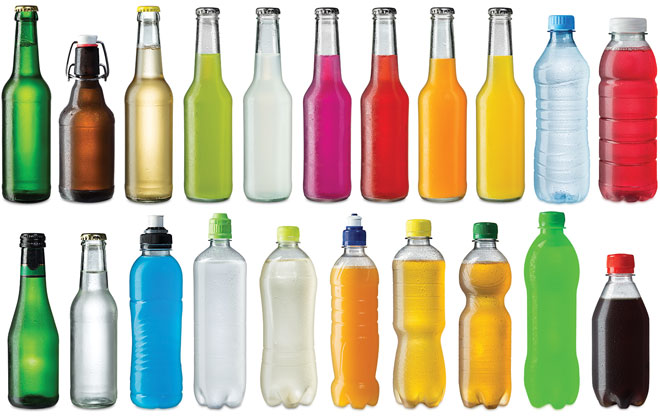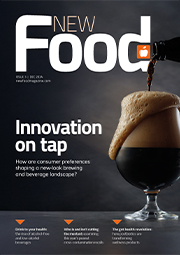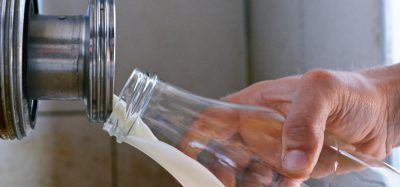Functional lipids in beverage products
Posted: 30 June 2016 | Guillermo E. Napolitano, PhD, Expert Scientist, Nestlé Development Center | No comments yet
The last decade has witnessed an extraordinary surge in the development of beverage products containing healthier oils and nutritionally active lipid ingredients. There has been a significant shift from the use of relatively unhealthy, but chemically stable, fats rich in saturated and trans fatty acids (TFA), to healthy and chemically unstable oils rich in unsaturated fatty acids. As a consequence, research resources also shifted from the more conventional aspects of the physico-chemical properties of bulk fats to more complex problems of lipids oxidation in bulk, disperse phases and oil in water emulsions1,2.


Since the implementation of mandatory labeling of TFA in packaged foods and beverages in the USA in 2006, more than 2 million tons of soybean oil have been lost or diverted from partial hydrogenation to other uses. The US Food and Drug Administration estimates that between 2003 and 2012 the content of TFA in foods has been reduced by 78%. The most recent decision to remove the GRAS status of PHO (preliminary determination in 2013 to be effective in June 2018) will further accelerate the transition to alternative oils3 . The new focus is – and will continue to be – incorporating the ‘good’ rather than eliminating the ‘bad’ fats and oils.
Opportunities and challenges for functional lipids
There are significant challenges involved in the development of a beverage containing healthier or functional lipids that will maintain all the necessary sensory attributes. The most critical single hurdle for the development of beverages containing healthier oils is achieving oxidation stability, especially in products with long expected shelf lives stored at ambient conditions.
To incorporate healthier and or functional lipids in beverages – basically adding oil and specific lipid compounds to water based products – it is necessary to address the following technological challenges:
A) Physical stabilisation of fine suspensions and oil in water emulsions
- Emulsion and fine dispersions need to be stabilised by effective food emulsifiers and stabilisers preferentially by ‘natural’ (label friendly) ingredients and additives
- Develop process and engineering solutions as alternatives to chemical emulsifiers and stabilisers.
B) Chemical stabilisation of flavour and colour in emulsions
- Incorporate ‘natural’ lipid antioxidants acting individually or combined in a synergetic mode
- Find ‘natural’ metal chelators as effective as, but better perceived than, EDTA (ethylenediaminetetraacetic acid)
- Preserve native antioxidants present in unrefined or mildly refined oils
- Design engineering solutions as alternatives to the addition of oil antioxidants (e.g., handling, packaging and processing).
Lipids as functional ingredients for RTD beverages
Adding healthy and functional ingredients has become very common over the last few years. Lipids with potential relevance, or currently being used for functional beverages, are listed in Table 1 (below). A review of new and emerging oils has been previously published4.
The rest of this article is restricted - login or subscribe free to access


Why subscribe? Join our growing community of thousands of industry professionals and gain access to:
- bi-monthly issues in print and/or digital format
- case studies, whitepapers, webinars and industry-leading content
- breaking news and features
- our extensive online archive of thousands of articles and years of past issues
- ...And it's all free!
Click here to Subscribe today Login here







